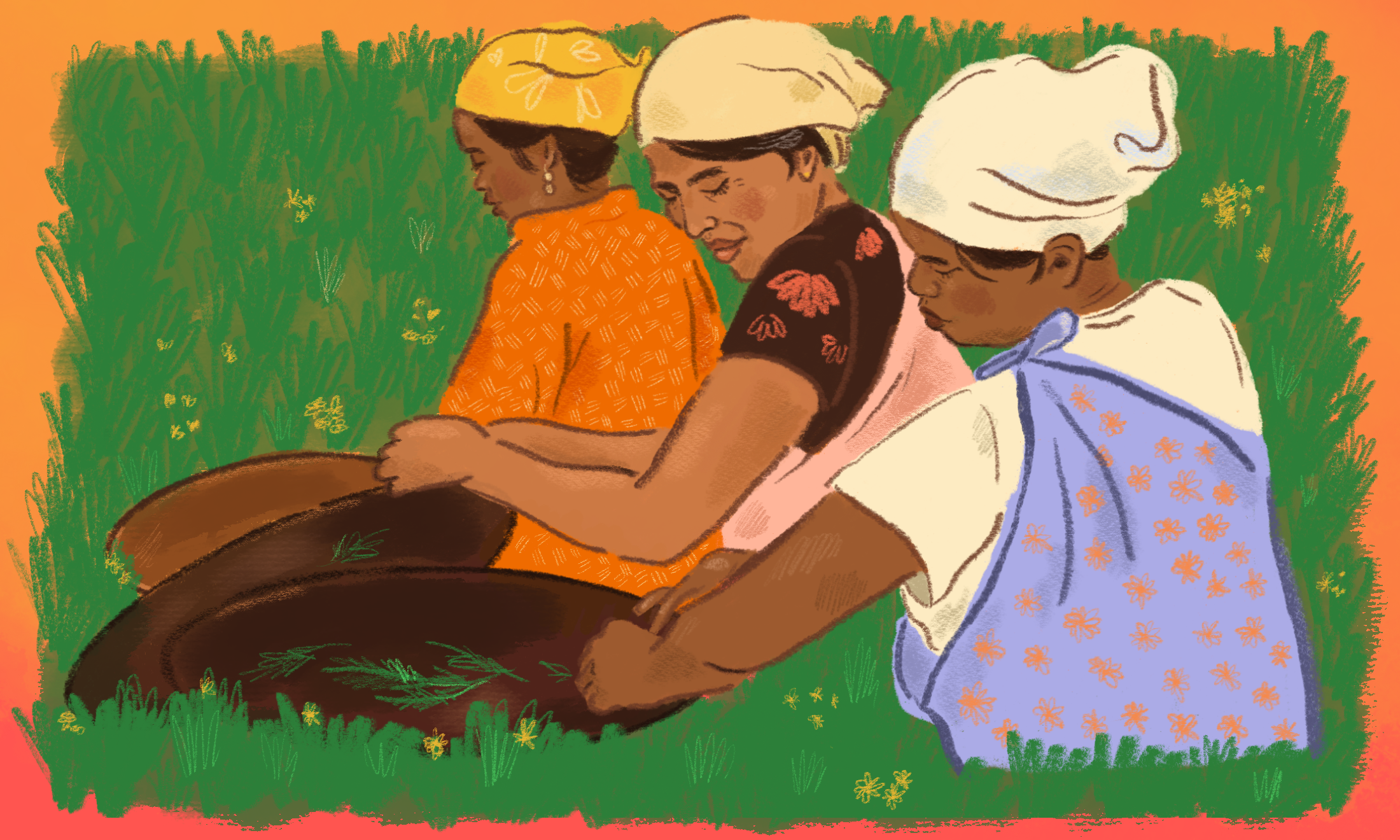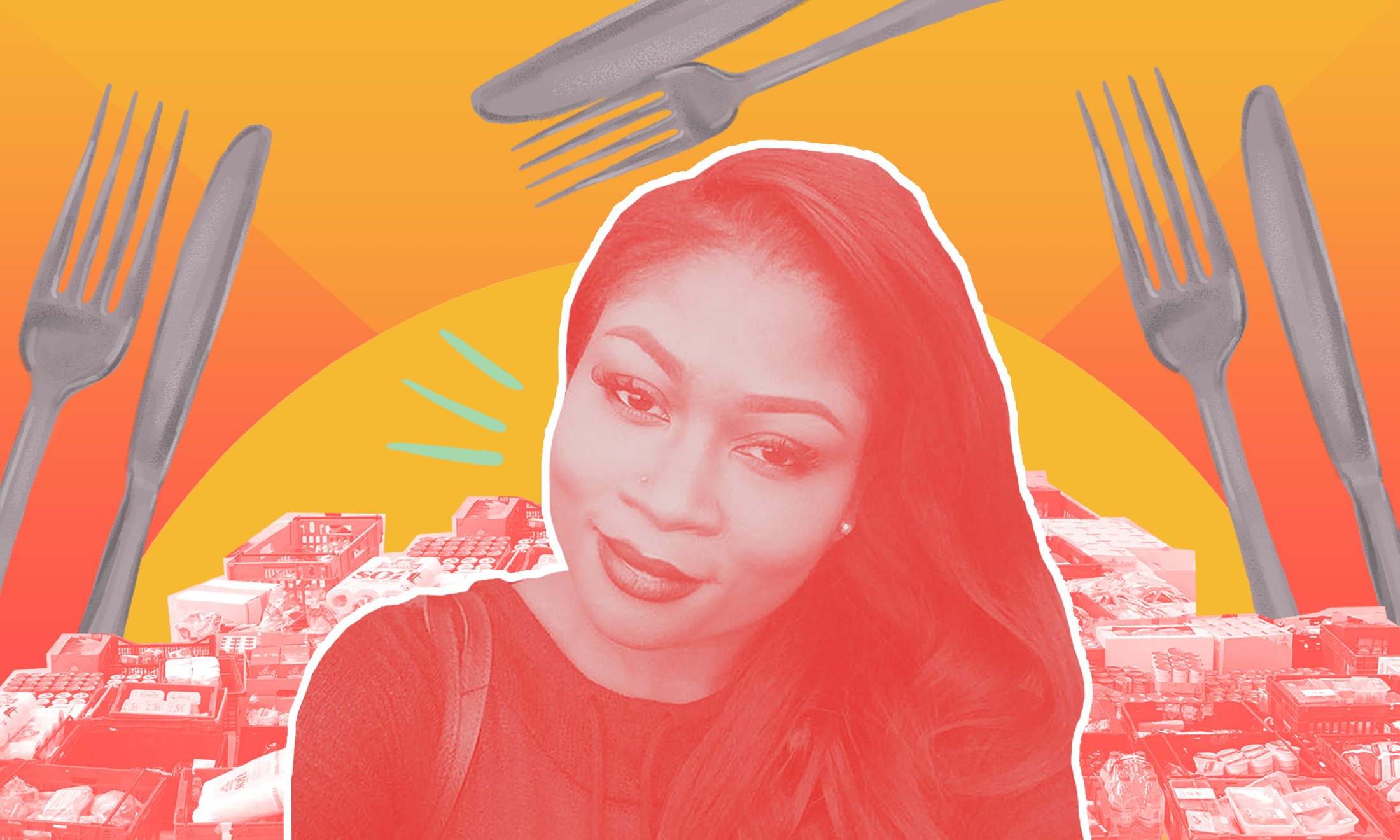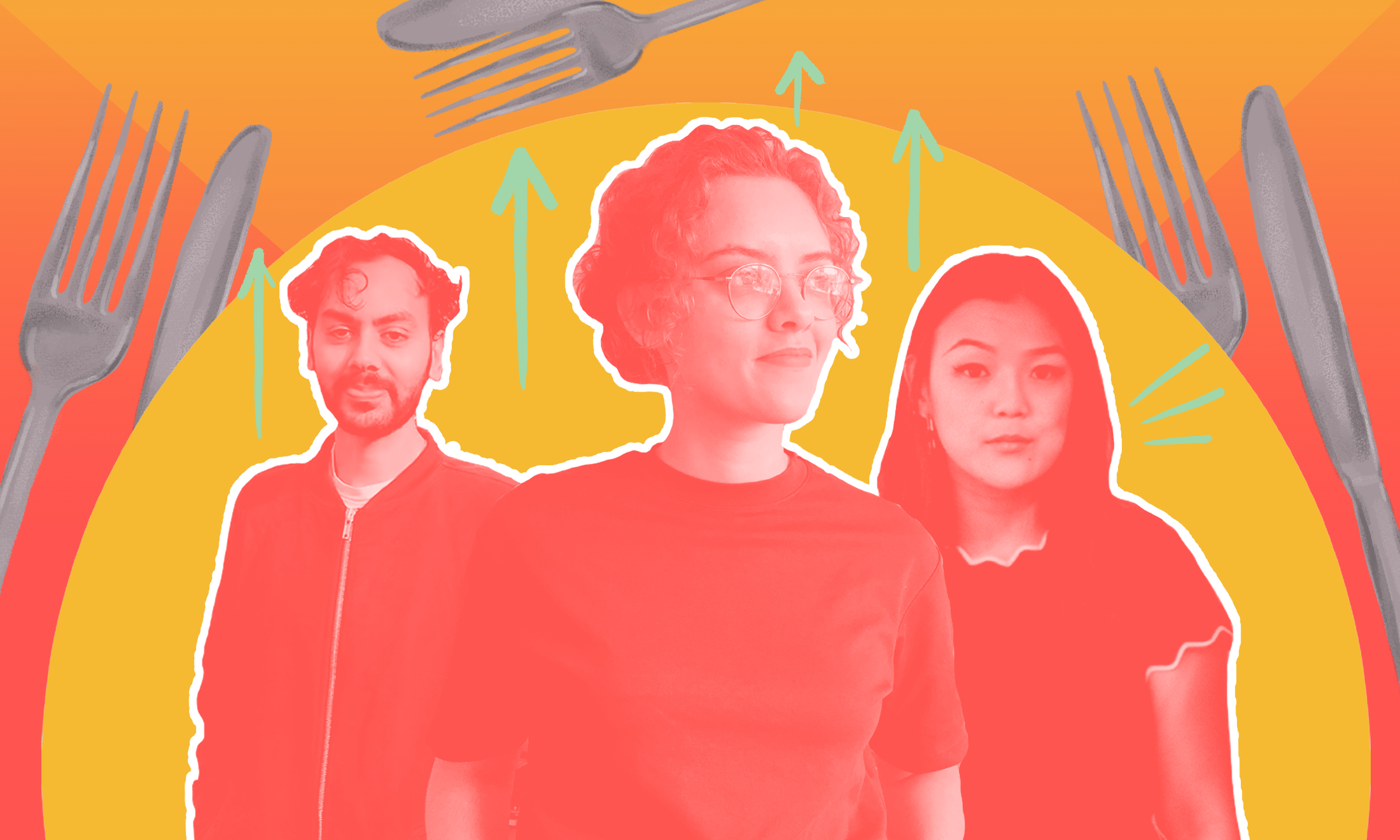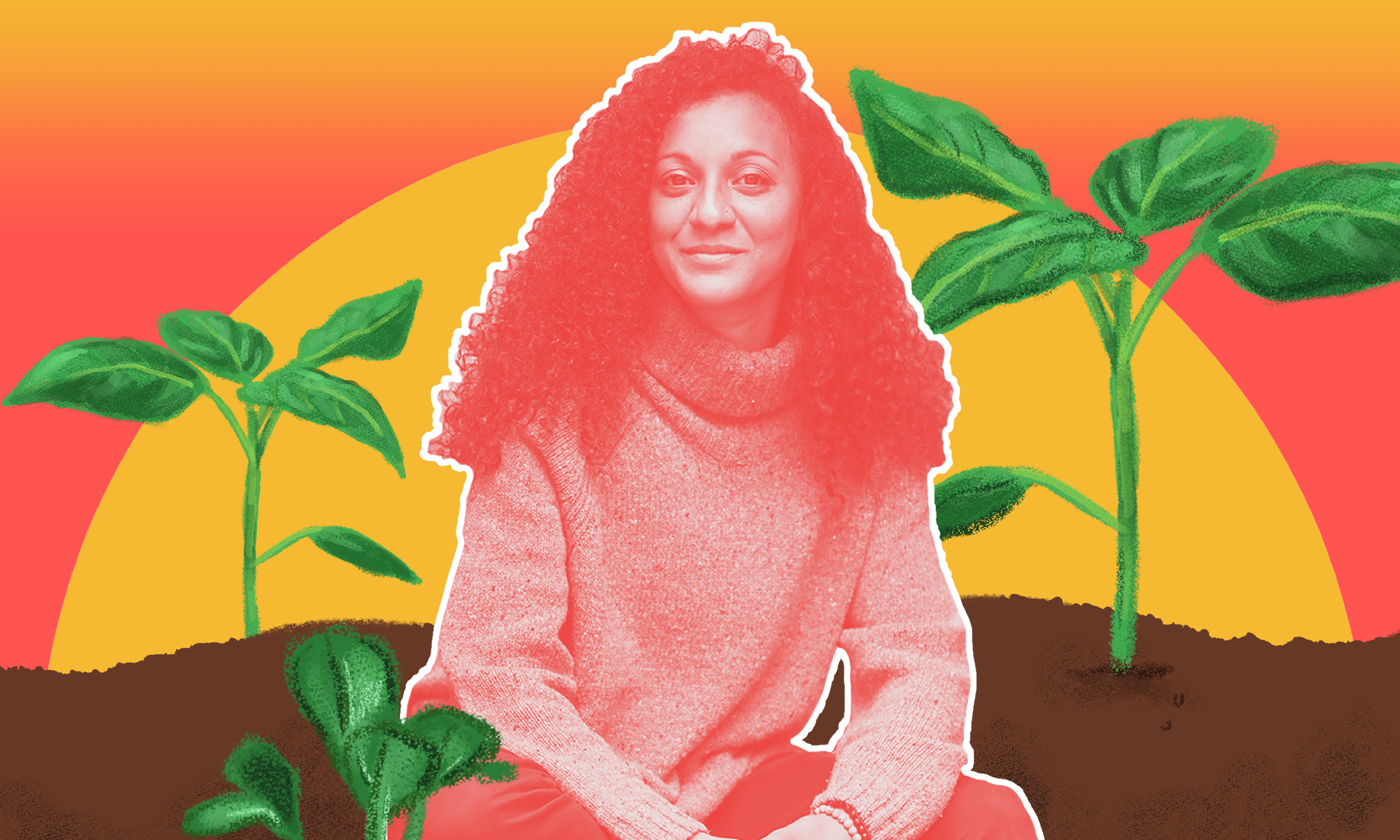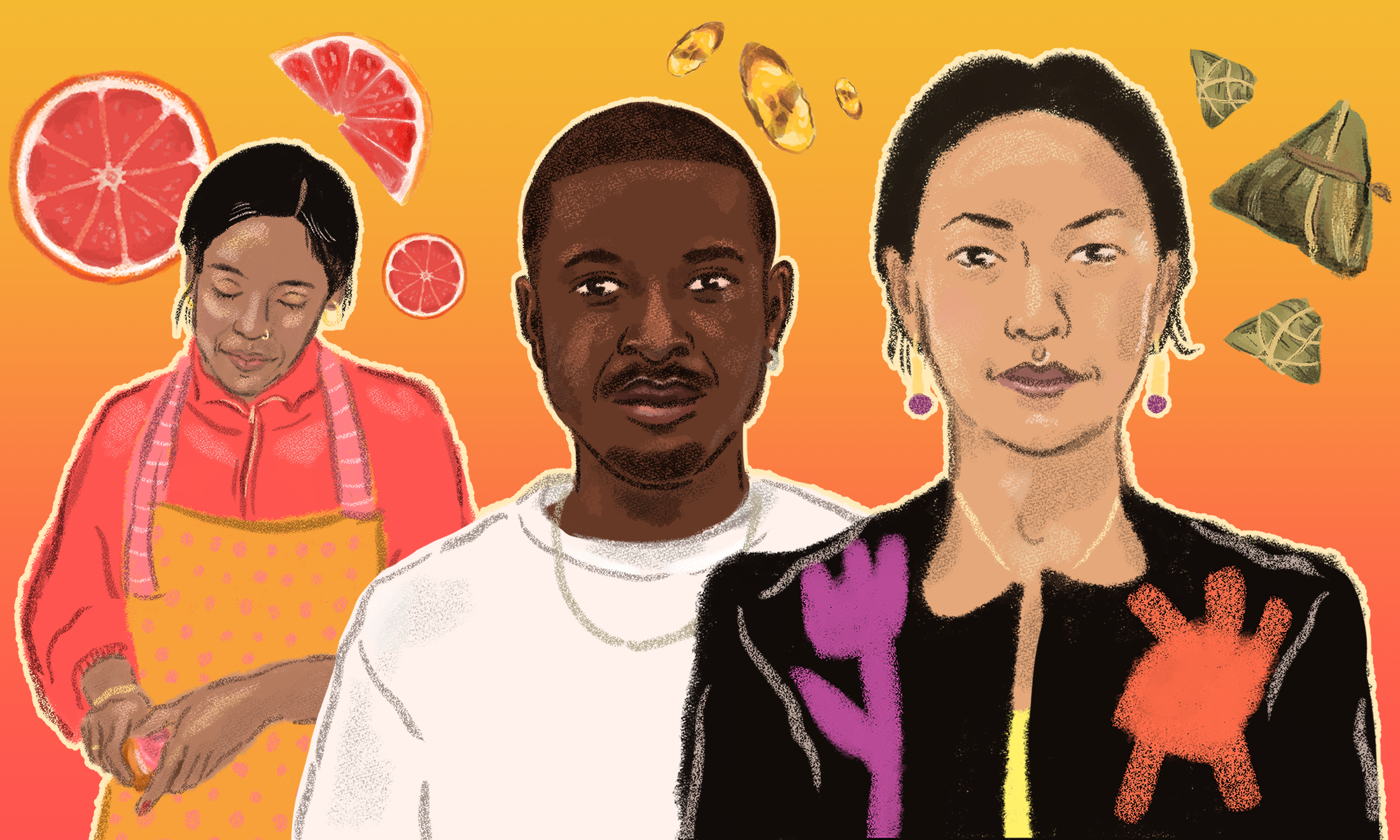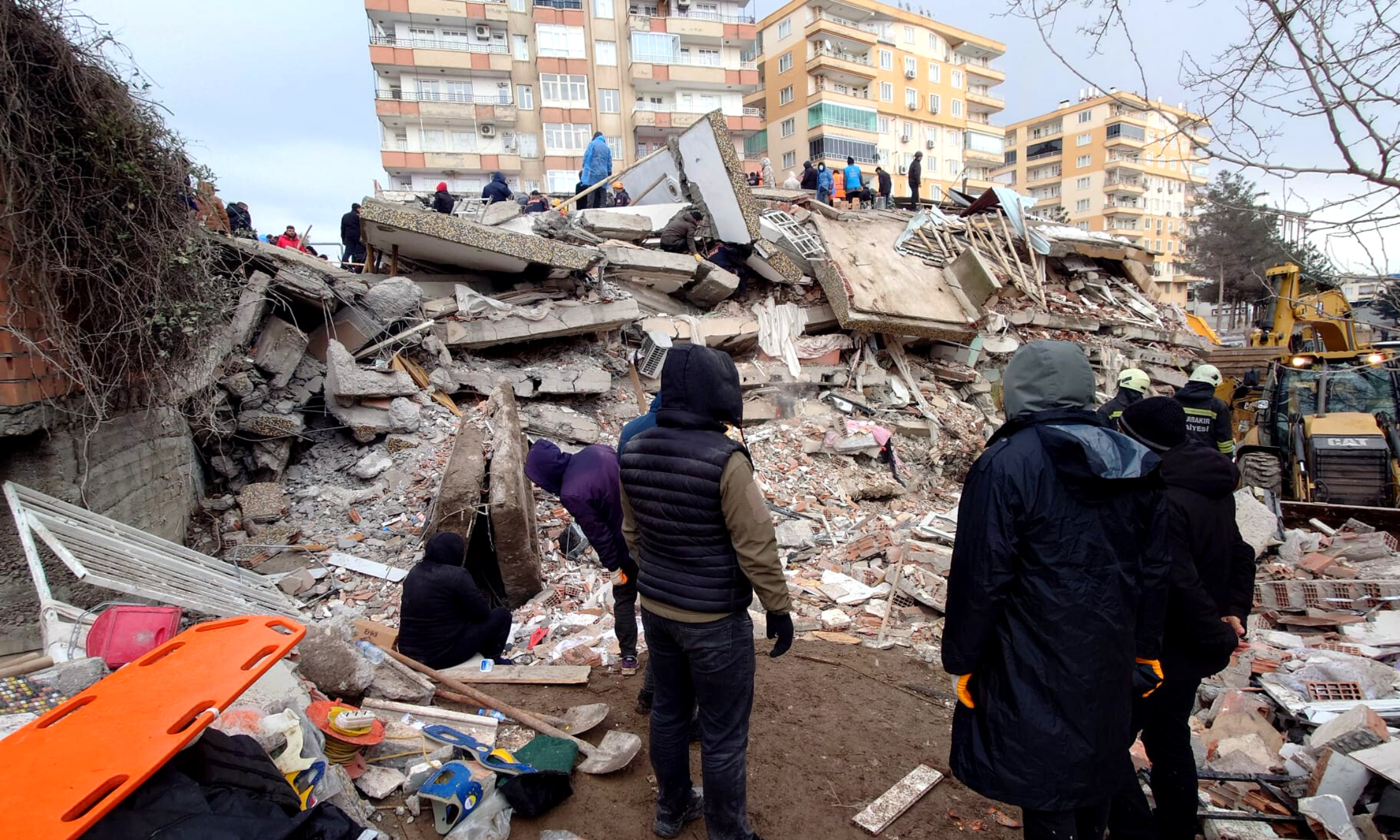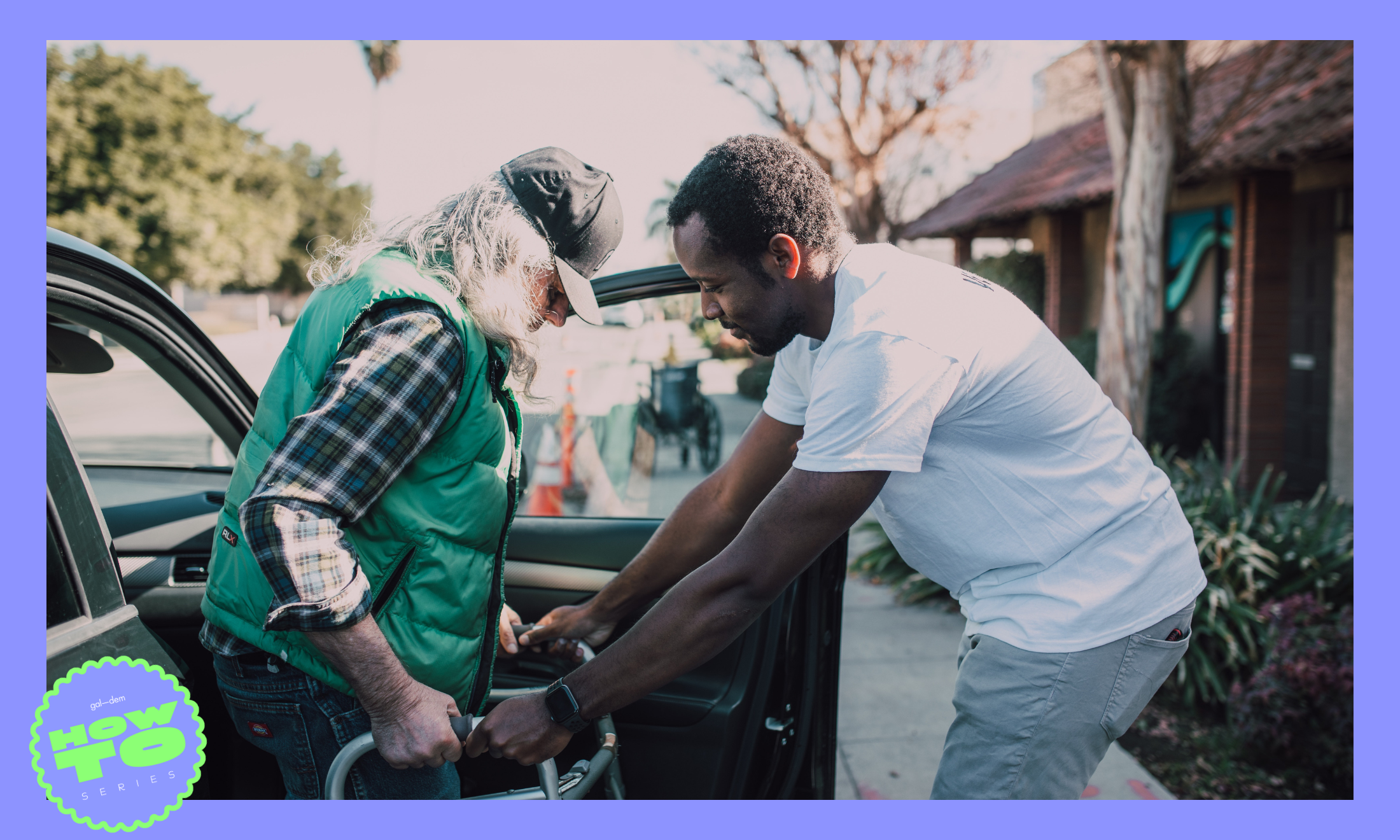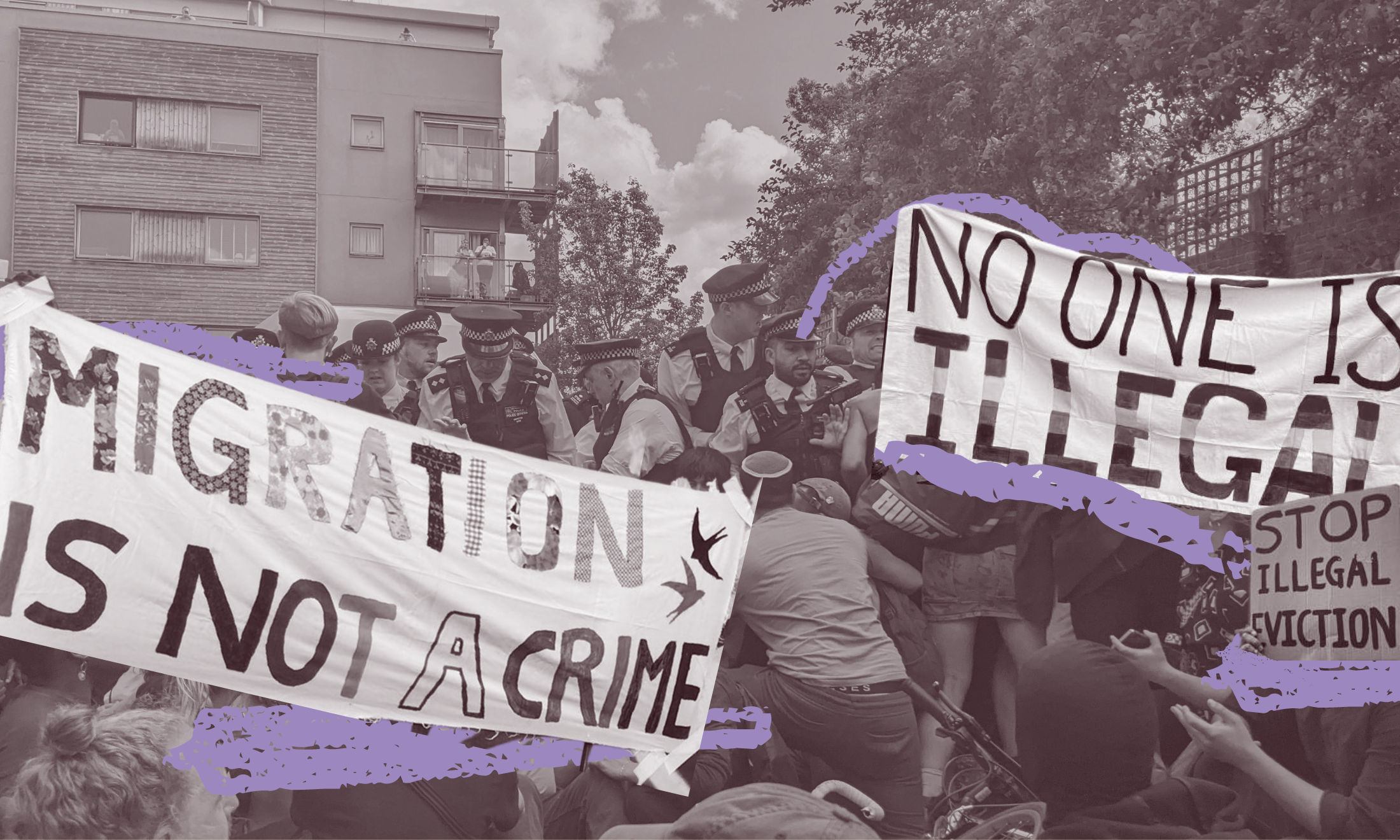Lovin it: How a group of Marseille workers seized a McDonald’s and turned it into a foodbank
The inside story of how a migrant community in one of France's most divided cities turned a fast food site into a lifeline.
Hanna Bechiche
09 Aug 2021
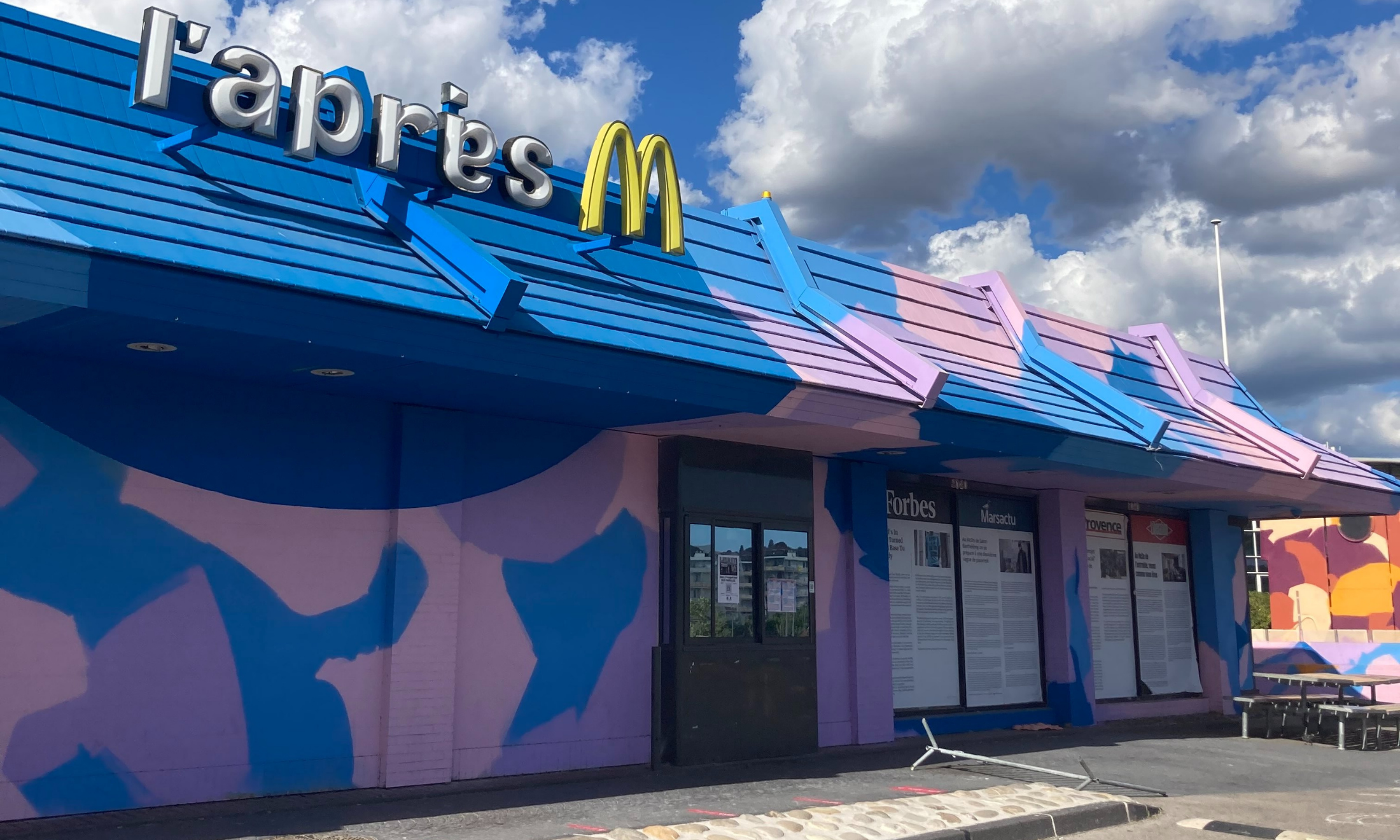
Hanna Bechiche
One of the most diverse cities in Europe sits at the edge of southern France.
Known as the ‘secret capital city’ of France, Marseille is home to one of the largest immigrant communities in the country. Most are from North African nations like Morocco and Algeria, and of Muslim heritage. But hasty constructions of public buildings in north Marseille, meant to house a growing migrant population, has seen the city divided into two. Now the cut-off and deprived northern side of Marseille, answers to the well-off southern half.
Nestled at the foot of these high-rise public housing blocks in the Saint-Barthélemy neighbourhood sits a McDonald’s, serving as a welcome mat to the hard-edge of the northern districts. Yet, the last time this one served Big Macs was in 2018, before the franchise decided to close its doors and lay off its 77 employees.
After years of sit-ins and strikes aimed to stop the sale of what used to be the second biggest employer in the northern neighborhoods, the building found a new lease of life during Covid – as a foodbank rebranded ‘L’après M’ [‘the After M’].
In March 2020, the group of former McDonald’s workers requisitioned the building and invited a local association to use the kitchens to cook meals for homeless people. After a few months, what started as a small venture turned into a partnership, with 47 local associations serving a line of people from all walks of life that circled the whole site. A year later, now the foodbank sees around 1,000 people arrive weekly to pick up parcels of free food, including items like fresh vegetables, dry foods, halal meats, and cooking essentials.
“This isn’t just a food bank,” one of the beneficiaries tells me. It is 11am on Monday morning and people are queuing where the drive through used to be. “This is more like a lifeboat.”
Steering the lifeboat are 30 to 40 volunteers, who rotate duties every week. They are the worker bees who’ve turned the industrial interior of McDonald’s into a colorful social centre that feels like a home. Here, all doors are open; the place buzzes with activity and corridors echo with laughter. As soon as I enter, I’m greeted with warm welcomes and happily directed to the office, which doubles up as a break room where volunteers gather for coffee and a chat. A to-do list of next steps for L’après M covers one wall of the room, while a candy floss machine, used for a recent kids’ fete, leans against another.
“Do you want coffee? Sit down, make yourself comfortable,” urges Ourada, a former L’après M beneficiary-turned volunteer. She’s a French-Algerian mother of four who has been coming to help every day since the November lockdown. “Do you want to know how [L’après M] began? Well, as a joke. Everything does here. We sit in the break room, we laugh and throw around ideas, and usually there’s one that sticks.”
“Every inch of space is utilised in L’après M. Even the little green verges in the parking lot have been transformed into vegetable patches by Yazid, a French-Algerian volunteer gardener”
But Ourada stops joking when she talks about how hard the Covid-19 crisis hit the northern neighborhoods of Marseille. “Here, people weren’t scared to die of Covid,” she says, her voice lowering. “They were scared to die of hunger. A lot of us, including me, lost our jobs, and this neighborhood is barely connected to the city centre. There’s only one bus line that goes through the whole northern side. Meanwhile, the southern side has Metro lines, tramway lines, bus lines, and even shuffle boats.”
“During the first lockdown, volunteers sometimes worked 22 out of 24 hours. If people couldn’t come to us, we’d deliver their weekly parcels of food to them.”
When Ourada takes me on a tour of the place, I notice the skeleton of the building’s previous incarnation peeking through. The former McDonald’s order counter is surrounded by dozens of trolleys filled to the brim with groceries, watermelons, and soda bottles (I spot brands beloved by the North African community). A corner of what was once the restaurant area has been turned into a children’s library. Another corner currently functions as a computer room.
Every inch of space is utilised in L’après M. Even the little green verges in the parking lot have been transformed into vegetable patches by Yazid, a French-Algerian volunteer gardener whose aim is to show children attending the social centre how food ends up on their plates – or in their Happy Meals.
In the kitchens, all the fast-food machines are saran-wrapped. “It’s to show them [McDonald’s] that we won’t touch or damage their stuff. We’re just using the building,” Yazid explains. These covered machines are a reminder of the collective’s squatter status on the site—at the time of writing McDonald’s is still refusing to let L’après M legally use the empty premises.
It’s 2pm and deliveries have stopped, but a late beneficiary arrives at the drive through window, enquiring if there are any parcels left for a family of six. A volunteer rushes to the cold rooms. While waiting for her groceries to be ready, I ask the waiting woman how she came to know of this place.
“I used to eat here,” she tells me, lulling her sleeping daughter in her stroller. “Everyone did, it was one of the few places where we could all gather, where we would let our kids play on the slides.” As we chat, she tells me she’s French-Comorian by origin, and her husband French-Moroccan; like many families in the area, the pandemic brought great hardship. Word of mouth brought her to L’après M.
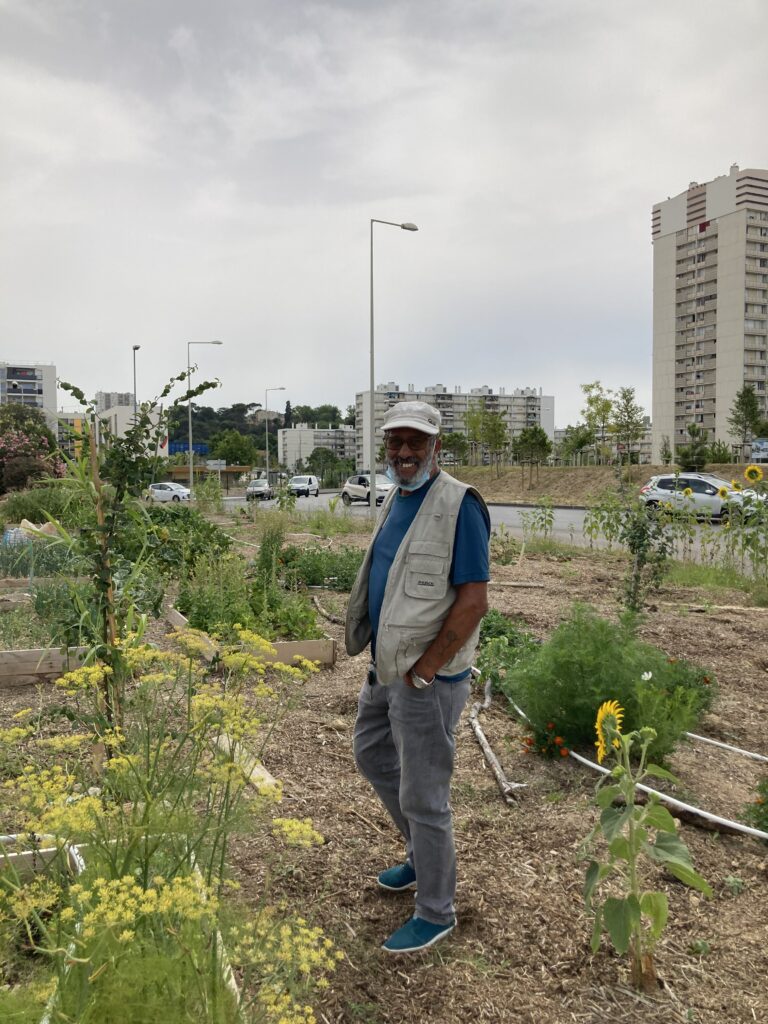
“During Covid, I was looking for a food bank that wasn’t closed, or didn’t ask for a thousand [pieces of] paperwork,” she explains. “I couldn’t find any. But people talked about this place, so I came to look. Back then, we used to start queuing at 5am or 6am, so that when they’d open at 9am, we’d be sure to leave with a parcel. There were hundreds of people queuing up at that time. Now everything runs more smoothly. It’s amazing what they’ve done to this place.”
At the core of L’après M is one basic idea: a bottom-up, grassroots approach to community support led and enacted by local people who understand the localised issues and context. “Who’s better suited to know which solutions are best than the one who is living the problem?” states Marius, an ex-McDonald’s employee, who now volunteers at L’après M. “The goal is to give local actors the means to help their community.”
“During Covid, I was looking for a food bank that wasn’t closed, or didn’t ask for a thousand [pieces of] paperwork. I couldn’t find any. But people talked about this place, so I came to look”
The seeds that blossomed into L’après M were planted in 2018, as a legal fight against the multi-million dollar company led by Kamel Guemari, ex-managing director of the restaurant. “Kamel had been working here for 20 years,” Marius explains. “He used to battle for workers’ rights a lot, even then. His aim was always to help our community by hiring young people that needed to be pulled off the streets.”
I come back the next day to talk to Kamel who had just returned from a humanitarian festival in Belgium. He’s a tall, kind-eyed French-Algerian man who refuses to see himself as a leader – despite his “mythical” reputation in northern Marseille – and insists on recognising collective work.
“The clients, the people of this neighborhood were the reason I ever had a job here, not McDonald’s,” he says “By coming to eat here, they gave me a job, now I’m paying them back.” He gestures to the volunteers gathered. “We’re not doing this for us, but for the people that will come after us. A lot of politicians voiced their support for our fight against McDonald’s, but we’re apolitical—we accept their help but we will not back any parties. All we want is to take L’après M to the next step.”
On 9 July, the city voted in favour of the mayor’s plan to buy the building. Once the buyout happens, L’après M will become a social corporation owned by whoever wants to buy a share for 25 euros. It will be owned by the people. “The next step is to turn this place into a social restaurant,” Kamel explains. “A social fast food [centre] that will serve locally sourced burgers, sold for a little compensation or for free depending on the revenue.”
With the opening of a social fast food centre, L’après M is set to become a real launching pad, not only for the northern neighborhoods, but for all of Marseille. “We want the north/south divide gone. Everyone is sick of it,” Kamel says, and the volunteers gathered nearby nod in agreement.
After the conversation drifts to the divide, Kamel steers it back to what’s most important to him, what he calls the lungs of L’après M. “We’ll primarily hire people from the neighbourhood, the ones who desperately need jobs,” he says. “Around here, there are a lot of hard-luck kids who aren’t given a chance. I know, because I used to be one. The thing that saved me was this Mcdonald’s. They hired me when I was 16, they gave me an opportunity. Now, we hope to give one to every kid who needs it”.

